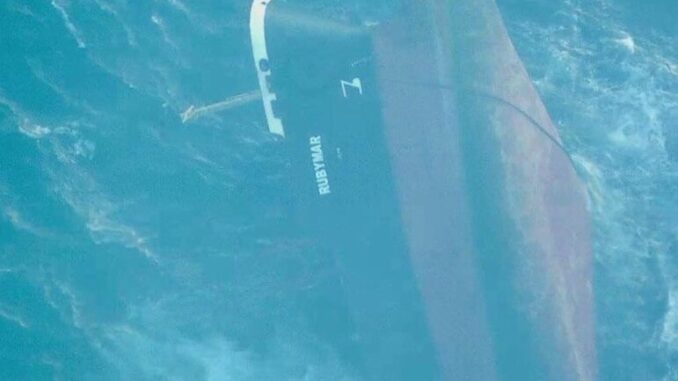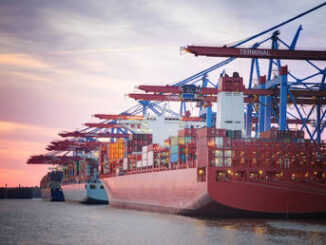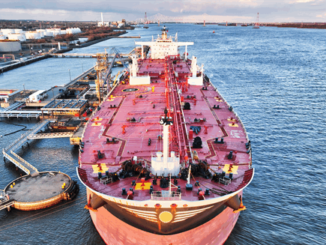
Emboldened by their first ship sinking the Houthis are now insisting any ships entering their territorial waters need to obtain a permit.
Ships will have to obtain a permit from Yemen’s Houthi-controlled Maritime Affairs Authority before entering Yemeni waters, Houthi telecommunications minister Misfer Al-Numair claimed yesterday. Yemeni waters extend halfway across the Bab al-Mandab strait, one of shipping’s most important chokepoints.
A potential environmental catastrophe is unfolding in nearby waters after the sinking over the weekend of the
Rubymar (pictured), a bulk carrier carrying 21,000 tons of fertiliser and spewing bunker fuel having been hit by Houthi missiles on February 18. The Lebanese-owned, Greek-managed, Belize-registered ship is the first constructive total loss in the ongoing Red Sea shipping crisis that has seen a huge swathe of the global merchant fleet give the region a wide berth. Latest data from Clarksons Research, for instance, shows Suez Canal transits last week were 60% below the 2023 daily average.
With an Italian destroyer taking out a Houthi drone over the weekend, the Yemeni militia warned Italian ships would become targets, and they delivered on that promise yesterday, firing two missiles at the 25-year-old MSC Sky II, a 2,169 teu ship owned and operated by the Genoese founder of Mediterranean Shipping Co, Gianluigi Aponte.
The ship’s master reported two explosions. The first exploded a distance from the vessel’s port quarter, while a second struck and damaged the ship with the crew quickly into firefighting mode.
“Operations are escalating and continuing in the Red and Arab Seas, the Gulf of Aden, and Bab al-Mandab, until the aggression stops and the siege on the Palestinian people in the Gaza Strip is lifted,” read a statement from the Houthi militia yesterday.
More than 60 ships have been targeted by the Houthis in the five months since war broke out between Israel and Hamas.
Despite the huge rerouting of much of the global merchant fleet around the continent of Africa to avoid the dangerous waters in the Middle East, supply chains now appear to be in sync with the extra sailing times.
New data from S&P Global shows that with the exception of the UK, delays linked to the Red Sea closures are by no means widespread, with supply chains effectively healing around the challenge with alternative routings.



